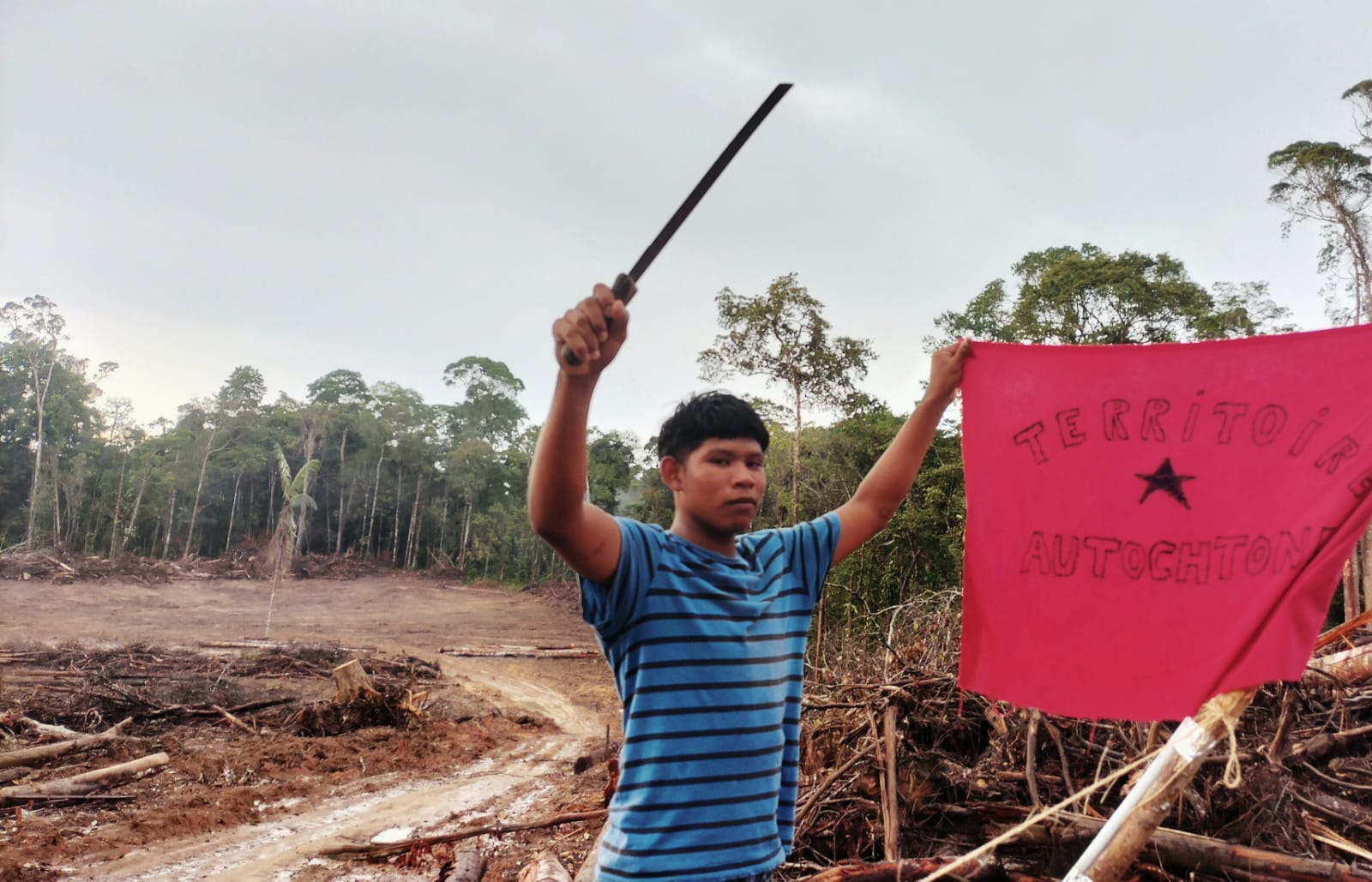In French Guiana, the State holds almost 90% of the land, while the indigenous people are demanding that their land be returned to them. A project to build a 140-hectare power station in an area managed by the ONF, close to the village of Prospérité, is a reminder of the ongoing struggle of the indigenous people to protect their traditional place and way of life from the French state.
The village of Prospérité, Atopo Wepe, is a typical Kali’na Amerindian village in French Guiana. For more than 30 years, this village has been established in the forest of western Guyana, next to the town of Saint Laurent du Maroni, creating a way of life that straddles two worlds, the western world and the Amerindian world. It is one of the few indigenous Guianese villages to have developed a collective self-sufficiency dynamic that includes hunting, fishing and traditional medicine, coupled with a process of reappropriating their culture (traditional practices of song, dance and dress).
A destructive project: the West Guiana Power Plant project (CEOG)
The CEOG project, run by the Bordeaux-based company HDF Energie, will deprive 140 hectares of forest adjoining the Amerindian Use Rights Zone (ZDUC) and the concession allocated to the village of Prospérité. The location of this power station will have a considerable impact on the way of life of its inhabitants. It deprives them of their relationship with the forest, of their traditional way of life and breaks the current community dynamic. Not to mention the total destruction of over 75 hectares of tropical forest, taking with it no fewer than 150 protected species.
As you can see on the map opposite, a land allocation commission met in November 2020 to determine the boundaries of the concession (530 hectares) and the ZDUC (3,816 hectares) allocated to the village, as well as the area allocated and deforested for the CEOG (140 hectares, 100 of which were deforested). The prefectoral decree will be issued a year later, in November 2021, setting out the State’s decision.
A fierce struggle
Since the launch of this project, the village has been mobilising against the construction of the CEOG, along with local associations including Mayouris Nature, the Jeunesse Autochtone Guyanaise, the Grand Conseil Coutumiers, as well as national associations. On the ground, actions have taken place to show the mobilisation of the inhabitants against this project by occupying the land to prevent the project from starting, but also in the field of litigation. Several complaints and legal appeals were lodged with the Cayenne prefecture, to no avail. Increasingly large gatherings were held to occupy the forest destroyed by the CEOG and to dismantle the new installations.
Roads were blocked in an attempt to make the voice of Guyana’s indigenous peoples heard. Public speeches were made and delegations sent all the way to Paris. A delegation made up of the customary chief and the movement’s spokespersons travelled to Paris to make the rights of Guyana’s indigenous peoples heard.
The French government has violated the rights of indigenous peoples in a number of ways. The search and arrest of the village’s traditional chief, Yopoto Rolland Sjabere, only aggravated the situation, showing how little consideration the French authorities had for the leader, who had previously been in a negotiating position. To date, more than 10 people have been detained, including minors, 4 trials are under way, 5 complaints have been lodged, including one appeal to the courts… Despite this fierce struggle, construction of the power station continues and more than three quarters of the forest plot has been destroyed.
***
Throughout the year, NatureRights (NR) teams on the ground responded to the village’s appeal and took action in a variety of ways. Members of NR. On the ground, NR members took part in a number of mobilisations and occupations of the threatened area. At national level, NR has supported the association in disseminating its plea, relaying the campaign and co-organising the travel of delegations. At the same time, the association is helping the village to become self-sufficient by creating an educational abbey as part of the Savoir de la Forêt programme.




